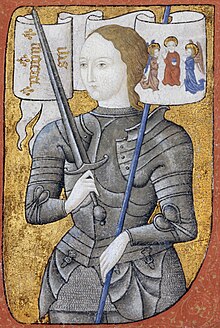Portal:Religion
The Religion Portal
Religion is a range of social-cultural systems, including designated behaviors and practices, morals, beliefs, worldviews, texts, sanctified places, prophecies, ethics, or organizations, that generally relate humanity to supernatural, transcendental, and spiritual elements—although there is no scholarly consensus over what precisely constitutes a religion. Different religions may or may not contain various elements ranging from the divine, sacredness, faith, and a supernatural being or beings. (Full article...)
 Vital article
Vital article
Hinduism (/ˈhɪnduˌɪzəm/) is an umbrella term for a range of Indian religious and spiritual traditions (sampradayas)[1] that are unified by adherence to the concept of dharma, a cosmic order maintained by its followers through rituals and righteous living, as first expounded in the Vedas. The word Hindu is an exonym, and while Hinduism has been called the oldest religion in the world, it has also been described by the modern term Sanātana Dharma (lit. 'eternal dharma') emphasizing its eternal nature. Another endonym for Hinduism is Vaidika Dharma (lit. 'Vedic dharma'). (Full article...)
 Did you know (auto-generated)
Did you know (auto-generated)
- ... that the Grave with the Hands commemorates a married couple, divided by society and religion, with hands clasped over a cemetery wall after death?
- ... that religious studies scholar C. Jouco Bleeker believed that religions are like acorns?
- ... that Gherardo Gambelli, the incoming archbishop of Florence, served as a prison chaplain in Chad for over a decade?
- ... that the capital of South Ossetia once had more Jews than Ossetians?
- ... that across his thirty-six collections, fashion designer Alexander McQueen contemplated religion, told fairy tales, and criticized the fashion industry?
- ... that fictional religions, often described in speculative fiction, have in some cases inspired real religious movements?
Joan of Arc (French: Jeanne d'Arc [ʒan daʁk] ⓘ; Middle French: Jehanne Darc [ʒəˈãnə ˈdark]; c. 1412 – 30 May 1431) is a patron saint of France, honored as a defender of the French nation for her role in the siege of Orléans and her insistence on the coronation of Charles VII of France during the Hundred Years' War. Claiming to be acting under divine guidance, she became a military leader who transcended gender roles and gained recognition as a savior of France. (Full article...)
Top 10 WikiProject Religion Popular articles of the month
 Subcategories
Subcategories
Topics
 Get involved
Get involved
- ^ Holberg (2000), p. 316; Nicholson (2013), pp. 2–5; McDaniel (2007), pp. 52–53; Michaels (2004), p. 21.



































































